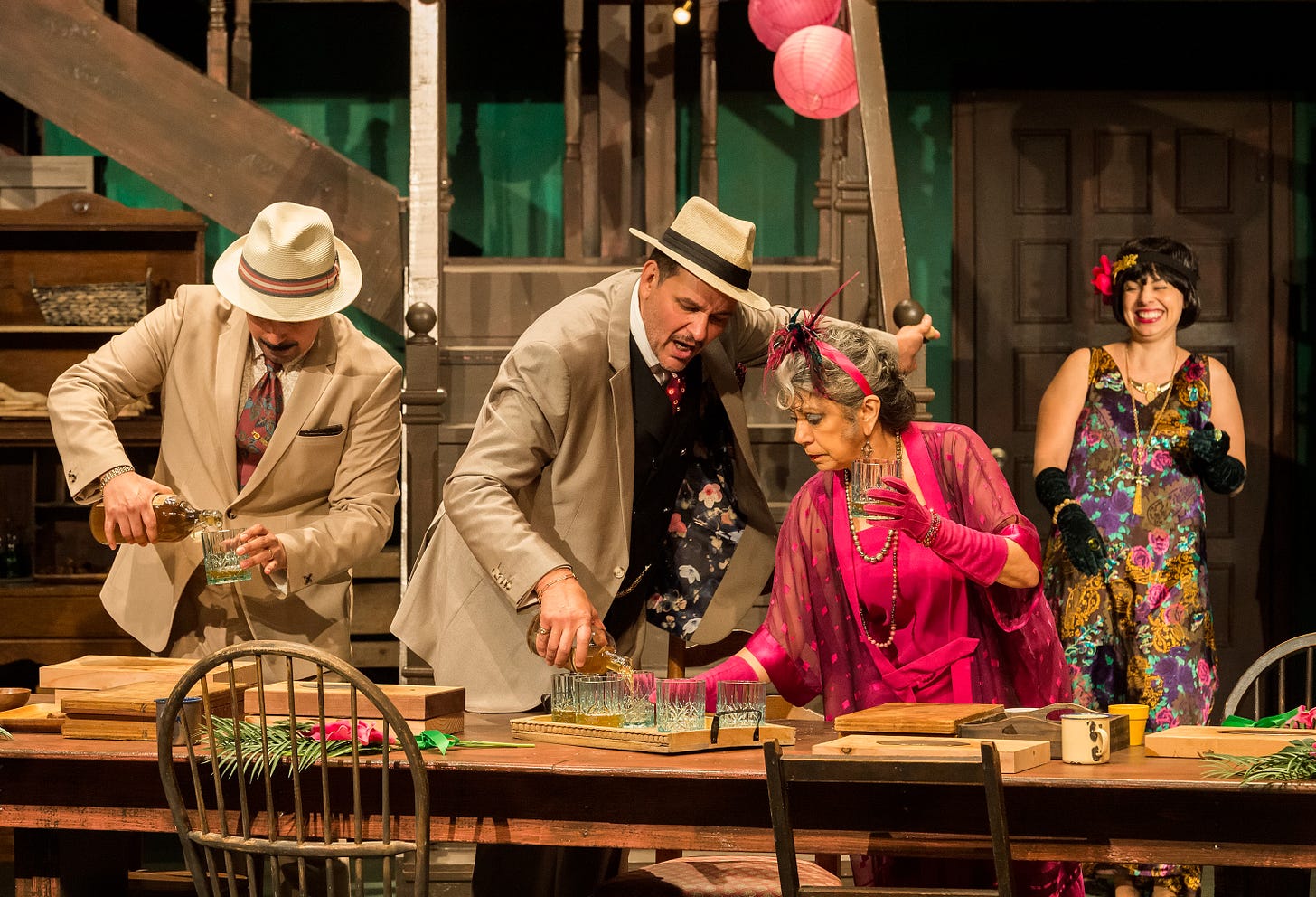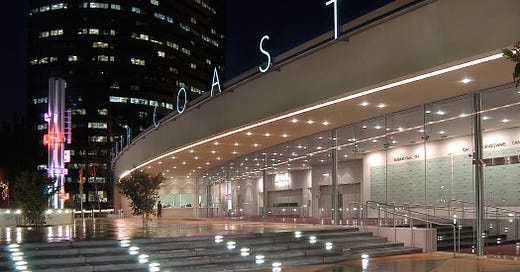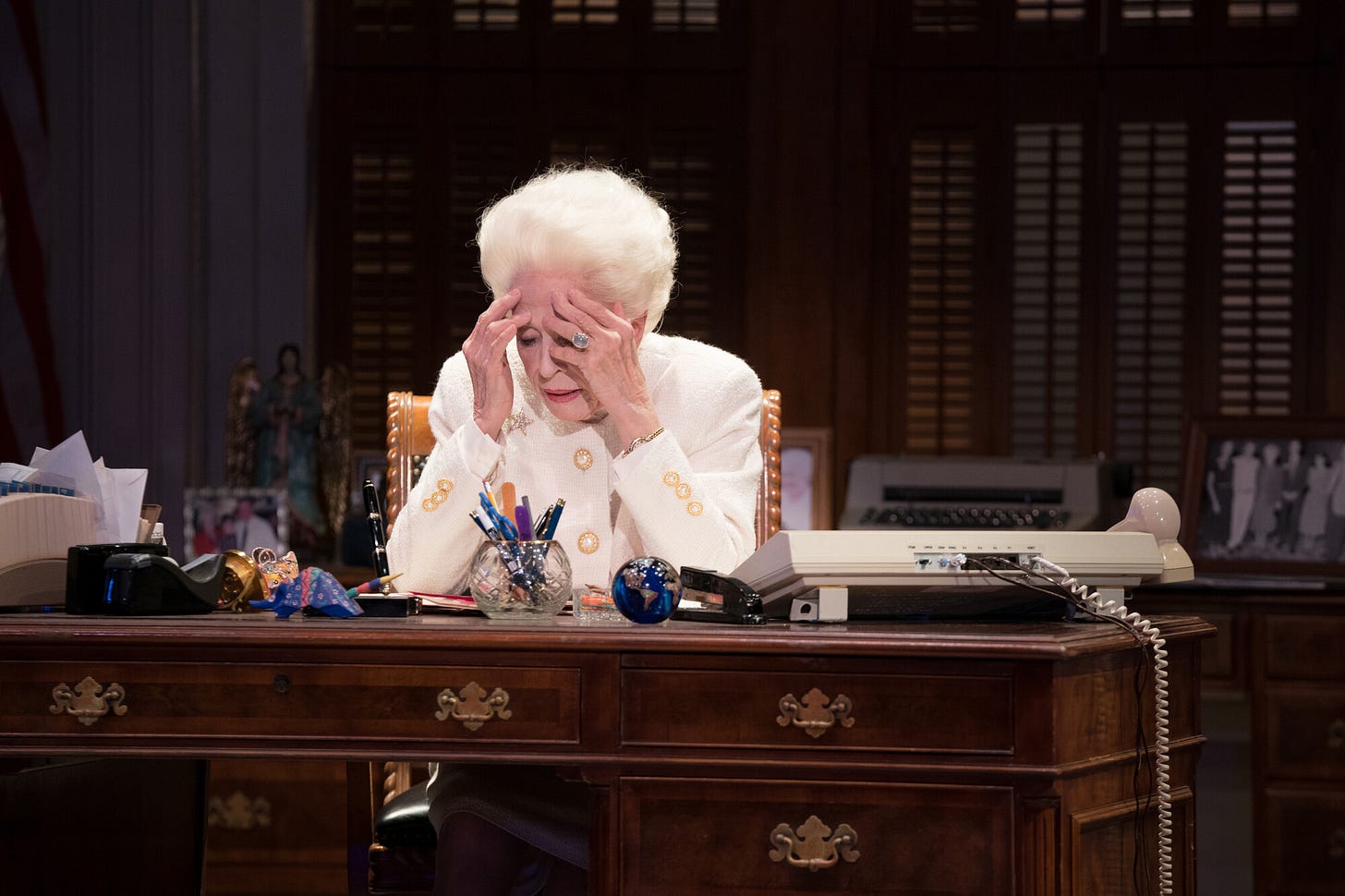Coming 'Clean' in Cancún and Costa Mesa, examinándose en los 'Espejos'
Plus 'Anna in the Tropics,' 'Ann' and four productions in smaller theaters
Welcome back, South Coast Repertory. Bienvenido de vuelta.
SCR’s 2019-2020 season — the first full roster planned by the new artistic director David Ivers — was of course interrupted by COVID early in 2020. Two of the three world premieres that Ivers had scheduled during that season have yet to appear there.
The company resumed producing last summer, outdoors at Mission San Juan Capistrano. It then re-opened its own larger venue in Costa Mesa last fall, with an irritating solo show acted by Ivers himself. Since then, none of the company’s productions made much of an impact.
But now there is “Clean/Espejos.”
The premiere of “Clean,” with the additional Spanish title of “Espejos,” wasn’t part of that original slate scheduled for 2019-20. But last year it was read in SCR’s online Pacific Playwrights Festival at SCR, apparently impressing Ivers enough to take its current slot as a full production.
And no wonder. It’s reminiscent of the groundbreaking premieres of plays that SCR’s founding leaders, David Emmes and Martin Benson, had a knack for discovering — a tradition that continued with the company’s next artistic director Marc Masterson, who brought us “Vietgone” and “Cambodian Rock Band.”
Are you wondering why the new play’s Spanish title is “Espejos” — which is usually translated into English as “mirrors,” not as “clean”? Playwright Christine Quintana answers that question near the beginning of a video interview on the SCR website. Of course, the different titles could create some public-relations confusion.
But both titles are appropriate for a play in which two young women from contrasting cultures come “clean” about similar histories of familial abuse — after examining themselves in their own mental “mirrors.” This happens in the context of a brief encounter with each other at a Cancún resort, even though linguistic and social and professional barriers prevent them from discovering how similar their stories are.
After a troubled youth, Adriana (Lorena Martinez) has become the head of the housekeeping staff at the resort, which is currently hosting the destination wedding of the slightly younger sister of Sarah (Nell Geisslinger) — from Vancouver, British Columbia. Although Adriana has apparently learned enough English to speak briefly with the tourists, Sarah is a lot more fluent with alcohol than she is with Spanish.

For audiences, the play is totally bilingual, with translations of the words in both languages appearing on easily legible and mobile set pieces. The Spanish translation and adaptation is by Paula Zelaya Cervantes. Without giving away any spoilers, I can say that the play is moving as well as occasionally amusing, and its fluent bilingualism enhances the poignance and the comedy.
Playwright Quintana certainly has cross-cultural credentials. She was born in Los Angeles to a Mexican-American father and a Dutch-British-Canadian mother. Like her character Sarah, she lives in Vancouver — or, as Quintana sometimes points out, “the Unceded Salish Coast Territories.”
The SCR production, staged with gripping intensity by Lisa Portes, is actually the first half of an almost-simultaneous joint premiere. Another production of the play is opening at Neworld Theatre in Vancouver this week, directed by Chelsea Haberlin and Daniela Atiencia. At SCR, the premiere of “Clean/Espejos” is also the main event next weekend in SCR’s first in-person Pacific Playwrights Festival since the COVID hiatus.
Tickets for performances this coming (and closing) weekend might be harder to obtain because of the festival. Here’s hoping that as many native Spanish speakers will see it as native English speakers. Besides the onstage translations, the printed program’s material about the play contains translations in both languages, and some of the signs around the theater also are bilingual. If anyone out there writes a Spanish-language review of it, please send me a link; I’d enjoy making the whole experience as bilingual as possible.
“Anna” and “Ann” in Pasadena
Meanwhile, at A Noise Within in Pasadena, the absence of bilingualism in its revival of Nilo Cruz’s “Anna in the Tropics” seems much more glaring now than when I first saw this play in 2003 at — not surprisingly — South Coast Repertory.

The play is set in 1929 in west Florida, among recent immigrants from Cuba. In a family-owned cigar factory, lectors are employed to read novels to the staff as they work, presumably to help divert their attention from the boredom of their jobs. The latest lector, newly arrived and dashing, chooses to read “Anna Karenina” to these workers, stirring up some of their own feelings toward each other, and toward him.
Although A Noise Within is devoted to “classics,” and the play itself would not be considered a classic by most observers, its references to a classic novel probably meet A Noise Within’s classical entrance requirements. The play’s setting and casting also enable the production to qualify as Latino — obviously an important marker for attempts to attract diverse audiences. Jonathan Muñoz-Proulx directs a lively staging, although the play has dated somewhat since 2003.
With “Anna” opening on the same weekend as “Clean/Espejos,” the question in my mind became obvious — why is this Cuban lector reading to the Cuban-American workers in English? Wouldn’t he use a Spanish translation of the novel? And that, of course leads to the question of why the cigar workers themselves are talking so fluently — even eloquently — in English, when Spanish is their native tongue. As more productions use stage-friendly titles for maximum bilingualism, it’s going to become increasingly difficult to pull off “Anna in the Tropics” and similar plays without them.
About four miles west of A Noise Within, the title “Anna” shortens into “Ann,” at the Pasadena Playhouse. This is Holland Taylor’s acclaimed impersonation of the witty Ann Richards, who became famous as the celebrated keynote speaker at the 1988 Democratic convention, then as the first woman to be elected governor of Texas without following her husband in that role.
Taylor began developing “Ann” at the long-gone NoHo Arts Center (you might remember it, on the south side of Magnolia Boulevard just east of Lankershim?) with its co-proprietor Kevin Bailey — who remains the show’s executive producer. Then she did a workshop production in Texas and pre-Broadway engagements in Chicago and Washington, finally opening on Broadway in 2013, garnering a Tony nomination for best actress.
She delivers a great performance, and in fact a video version was available free of charge on the PBS “Great Performances” website when the Pasadena production opened on March 26. But the freebie on PBS ended on March 31. Taylor apparently has declared that she won’t perform the role again, although the video is available for a price.
So with Pasadena currently hosting an “Anna” and an “Ann,” will the city’s Boston Court pick up on the “Ann” theme and open, say, “Anna Christie” anytime soon? Not quite. But Boston Court will open “Both And (a play about laughing while black)” on April 16. Maybe the Pasadena chapter of the “Ann” club will extend honorary membership to the newcomer, thanks to the “And” in the title.
…and in the smaller theaters
Speaking of plays that I originally saw at South Coast Repertory that seem to have faded somewhat (see “Anna in the Tropics,” in the above section), the same could be said for Sarah Ruhl’s “In the Next Room…or the vibrator play. ” Or maybe the problem is Lane Allison’s staging for Open Fist Theatre’s production in Atwater, which lasts about 40 minutes longer than Casey Stangl’s SCR rendition lasted in 2010.
At least Ruhl’s play, about the pioneering use of the newfangled vibrators in the late 19th century, isn’t a fictional story about aspects of the private lives of real-life Hollywood celebrities. I’m tired of those plays.
Take Jonathan Tolins’ “Buyer & Cellar,” please. It’s a solo, dating from 2013, about a young man who is employed to run the faux shops at Barbra Streisand’s estate. Other productions of it were previously seen at the Mark Taper Forum (!) and at the Garry Marshall Theatre (then called the Falcon). I can’t understand why Celebration Theatre (now at the Broadwater on Santa Monica Boulevard in Hollywood) would choose this script as its return from the COVID hiatus, instead of a production with greater substance.
At the beginning of “Buyer & Cellar,” the character has just lost his job at Disneyland. That actually sounds like a premise for a more interesting play that wouldn’t have to get entangled in issues of what’s genuine or not.
Instead, LA’s current Disney-related play is the West Coast premiere of Lucas Hnath’s “A Public Reading of an Unproduced Screenplay About the Death of Walt Disney,” also dating from 2013, offered by Working Barn Productions at the Odyssey in west LA. This script not only makes spectators guess if there is any truth to its wild speculations, but it’s also well, a “public reading" — which means that the stage directions are spoken out loud in staccato rhythms that drone on and on, creating the kind of static that could easily induce sleep.
But here’s an antidote to the boredom generated by “A Public Reading” — the Actors’ Gang production of Dario Fo’s “Can’t Pay? Don’t Pay!” in Culver City. Whatever you think of the 1974 play itself, which occasionally gets too preachy, director Bob Turton keeps the energy level high, generating considerable laughter in a wacky tale of blue-collar frustration over high prices. The Gang’s “Style,” involving frequent moments of emphatic direct address to the audience, is diametrically opposed to the mechanical rhythms of “Public Reading.”
Housekeeping notes…and the Substack app
I must correct a mistake that appeared in the emailed version of my last Angeles Stage column, as received by subscribers. I initially listed Ben Power as not only an adapter of “The Lehman Trilogy” but also as an actor in it, omitting the name of Adam Godley, the actor who plays the youngest of the three original Lehman brothers (and other roles, as needed).
After a faithful reader pointed out my error within a few minutes after posting, I quickly fixed the mistake on the Substack website.
While I appreciate the ability to send every new post to subscribers via free emails, I’d also like to mention a second convenient way to access the more permanent posts of Angeles Stage on the website — the new Substack app for iPhone, also free.
On the app, you’ll find dedicated inboxes for Angeles Stage and any other Substacks you subscribe to, with access to all previous posts, plus Substack’s own communications to readers and writers. Besides offering the ability to correct any emailed errors (which, of course, I hope will never happen again), the app and website prevent new posts from getting lost or cut off in email filters, or stuck in spam.
The Substack app is currently available for iOS. If you don’t have an Apple device, you can join the Android waitlist here.






